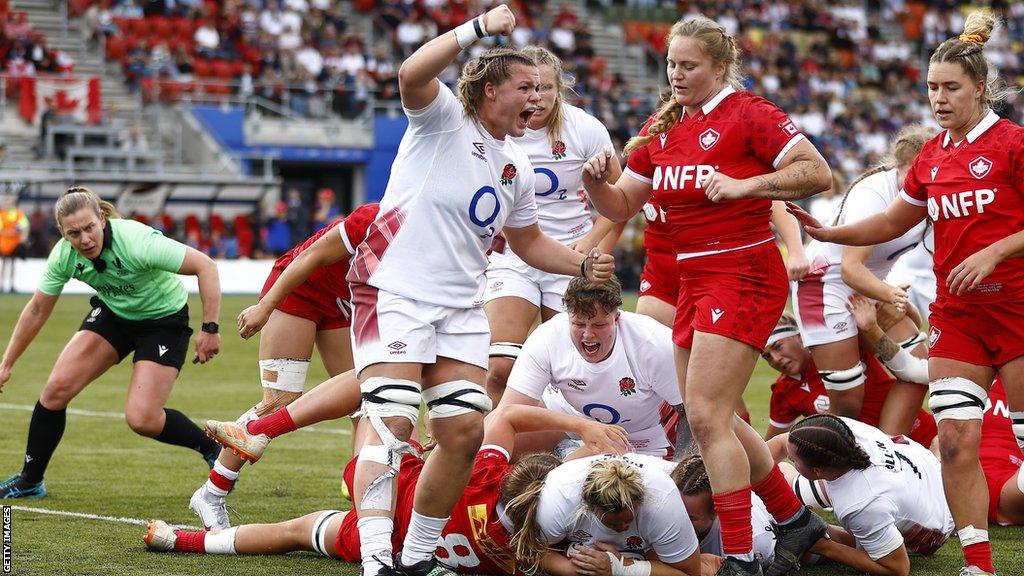Smart mouthguards will be a 'game-changer' before their first use during the WXV tournament
- Published

The Reds Roses will wear smart mouthguards for the first time this month at the WXV tournament
Rugby union will become the first sport to use instrumented mouthguards in elite matches to manage concussion, in a move hailed as a "game-changer".
World Rugby has confirmed smart mouthguards will be worn at the WXV - a new women's competition - before being brought in worldwide from January 2024.
Chief medical officer Dr Eanna Falvey told BBC Sport it would be a "really positive" change for the sport.
"The use of the mouthguard technology is a game-changer for us," he said.
"People want to play contact sport and they want to watch contact sport.
"As of January 2024, an instrumented mouthguard indicator will be part of the Head Injury Assessment [HIA] protocol. Having video on the side-line was a huge step forward. This is another step forward again.
"Us understanding the mechanism and the cause of high-impact events is the road to making the game a safer one."
Rugby union is facing an existential crisis over safety, with hundreds of former players taking the game's governing bodies to court over the management of their brain injuries in their careers.
But Falvey says gathering data through the mouthguards, both on a short and long term basis, will be another step forward in the management of brain health.
"Because the technology has advanced so much, the Bluetooth technology of the mouthguard can actually transmit a message to the matchday doctor on the sideline," he added.
"So if a player has a high-magnitude event, which sits above the threshold we have set based on our data, that player will be indicated to be removed from the pitch for assessment.
"Bringing in video technology changed how doctors could do their job, and this is going to have a similar impact.
"There is a second benefit to the use of the instrumented mouthguards, and that is being able to understand that chronic load, so the load over a week, over a month, over a year, over a career.
"We know right now from our data that during the course of a game your average elite player will have 24 events which are greater than 10G in linear acceleration, and 0.4 that are greater than 40G - that is a mean, and that means there will be players who will have considerably more - they are the players that we want to manage differently.
"So we think there will be significant insights into how we manage people in the long term, based on their exposure, not just in a match but in training as well.
"On top of that, this will move out into the community. The technology is now available in boil-and-bite format, which is considerably cheaper."